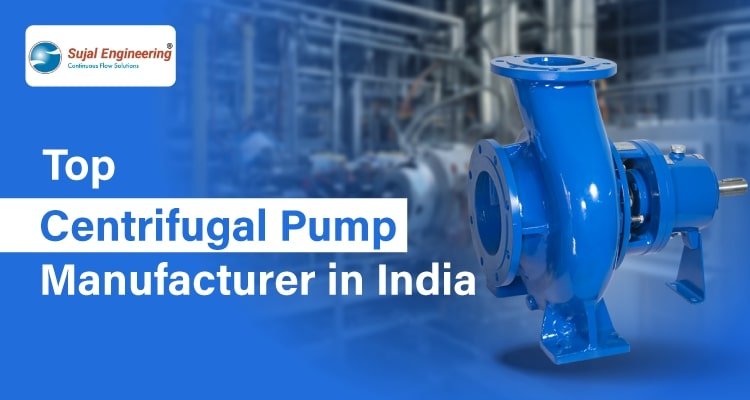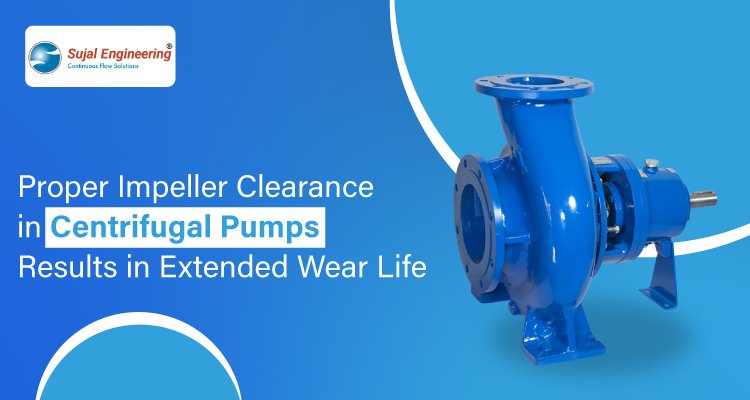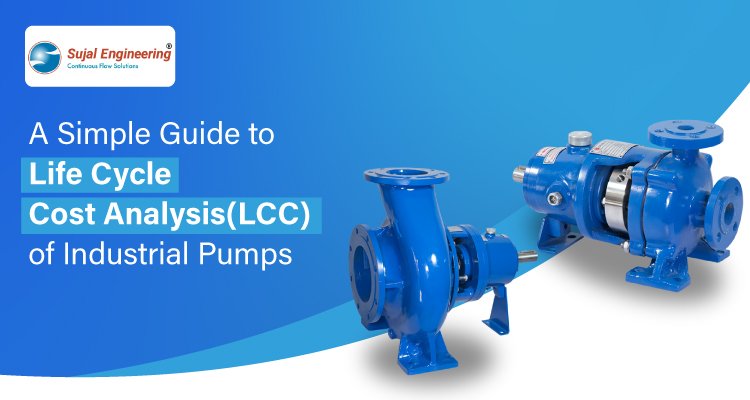Choosing the Right Material Pump: Key Considerations for Different Applications

Introduction
Choosing the right pump material is just as important as picking the right industries. The material your pump is made from plays a big role in how well it works, how often it needs maintenance, and how long it will last.
Whether you’re handling corrosive chemicals, abrasive slurries, high-temperature fluids, or food-grade liquids, picking the right material for your pump is key. The right material helps ensure the pump can handle the specific challenges of your application, keeping it running smoothly and lasting longer.
The right pump material choice not only impacts your pump’s efficiency and longevity but also influences operational costs. An improperly selected material can lead to premature wear, increased downtime, and more frequent replacements, ultimately affecting your bottom line.
In this blog, we’ll explore the key considerations that should guide your pump selection decision, from fluid compatibility and environmental factors to cost savings and pump life extension.
The Role of Material in Pump Selection
1. Fluid Compatibility
The pump material must match the fluid’s characteristics (corrosive, abrasive, etc.) to prevent damage and ensure efficient operation.
2. Corrosion Resistance
Corrosive fluids require pump materials like stainless steel or plastic to prevent degradation and extend pump life.
3. Wear Resistance
Abrasive fluids need wear-resistant pump materials, such as hardened alloys or ceramics, to minimize wear and tear.
4. Temperature Tolerance
High-temperature fluids require pump materials like titanium or high-grade steel that can withstand thermal stress.
5. Strength & Pressure Tolerance
High-pressure environments demand strong pump materials that can handle the pressure without failure.
6. Energy Efficiency
Smooth, low-friction pump materials like stainless steel or polymers help reduce energy consumption.
7. Durability
Durable pump materials like stainless steel or alloys extend pump life and reduce maintenance costs.
8. Maintenance
Pump materials like stainless steel are easy to clean, making them ideal for hygiene-sensitive pump applications.
9. Cost vs. Performance
Balance initial costs with long-term savings from durable, high-performance pump materials.
10. Environmental Impact
Consider eco-friendly materials, like recyclable plastics, in environmentally sensitive pump applications.
Common Pump Materials Used in the Industry
- Bronze
- Plastic/Polymer (PVC, HDPE, PTFE)
- Ceramic
- Titanium
- Alloy Steel
- Aluminum
- Carbon Steel
Applications: Marine, chemical, and sewage applications
Benefits: Corrosion-resistant, excellent for seawater and harsh environments, durable.
Applications: Water and wastewater, chemical, food and beverage
Benefits: Lightweight, resistant to corrosion and chemicals, cost-effective for non-abrasive fluids.
Applications: Abrasive slurry, mining, and sand processing
Benefits: Extremely hard, wear-resistant, ideal for abrasive and high-temperature applications.
Applications: Aerospace, chemical, and pharmaceutical industries
Benefits: High strength, lightweight, excellent corrosion and high-temperature resistance.
Applications: Mining, oil and gas, heavy-duty industrial applications
Benefits: Strong, wear-resistant, handles high pressure and temperatures.
Applications: General industrial, HVAC, water circulation
Benefits: Lightweight, corrosion-resistant, and affordable, good for low to moderate pressure systems.
Applications: Oil and gas, water systems, general industrial
Benefits: Strong, durable, good for moderate to high pressure, cost-effective for many industrial applications.
How Choosing the Right Pump Material Can Save Costs?
- Reduced Maintenance: Less wear and corrosion, leading to fewer repairs.
- Extended Lifespan: Durable pump materials reduce the frequency of replacements.
- Lower Energy Usage: Efficient, low-friction pump materials reduce energy consumption.
- Minimized Downtime: Fewer breakdowns prevent costly operational interruptions.
- Less Fluid Loss: Corrosion-resistant pump materials prevent leaks and contamination.
- Lower Lifecycle Costs: High-quality materials save money over time despite higher upfront costs.
- Improved Productivity: Efficient pumps enhance productivity, reducing the need for extra resources.
How Pump Material Can Help in Extending the Pump Lifespan?
Choosing the pump material is essential for extending its lifespan. Here’s how different materials help:
1. Wear and Abrasion Resistance: Hard pump materials like stainless steel or alloys resist wear from abrasive particles, reducing wear and tear.
2. Corrosion Resistance: Materials like duplex steels or titanium protect against rust and chemical corrosion, especially in harsh environments.
3. Temperature Tolerance: Materials that withstand extreme temperatures prevent thermal damage and maintain performance.
4. Chemical Resistance: Pumps handling aggressive chemicals benefit from materials like PVDF or PTFE, which resist chemical degradation.
5. Cavitation Resistance: Tough alloys prevent damage from cavitation, which can cause erosion and pitting.
6. Impact and Stress Resistance: Ductile iron or high-tensile steel absorb impacts and resist fatigue in high-stress environments.
Choosing the Right Pump for Different Fluids
Different pumps excel with fluids based on properties like viscosity, density, and temperature. Here’s how they work best:
1. Centrifugal Pumps
Best for low-viscosity fluids like water, moving large volumes efficiently with high discharging capacity. They’re not suited for thick fluids like oil.
Best For: Continuous flow of thin liquids, high-volume applications.
2. Chemical Process Pumps
Designed to handle aggressive chemicals, these pumps are made from corrosion-resistant materials like stainless steel or special alloys. They ensure reliable operation in harsh environments, handling acids, alkalis, or other corrosive substances.
Best For: Chemical processing, handling aggressive or hazardous liquids.
3. Polypropylene Pumps
Polypropylene pumps are widely used in chemical applications due to their excellent corrosion resistance. These pumps are ideal for transferring corrosive liquids like acids, alkalis, or other aggressive fluids that could damage conventional materials.
Best For: Handling corrosive fluids like acids and bases in chemical processes.
4. Self-Priming Mud Pumps
These pumps are specifically designed to handle mud, slurry, and other thick fluids in applications like drilling or construction. They are capable of self-priming, which means they don’t require manual priming to operate effectively, making them ideal for viscous or solid fluids.
Best For: Drilling, mining, or other heavy-duty applications with mud or slurry.
Key Factors to Consider for Pump Selection for Different Industrial Pump Application
Different pumps excel with fluids based on properties like viscosity, density, and temperature. Here’s how they work best:
1. Flow Rate
Ensure the pump meets the required flow rate for the pump application. Too low or too high flow rates can affect system efficiency and performance.
2. Head (Pressure) Requirements
Consider the pressure the pump needs to generate to overcome system resistance, including pipe friction, valves, and elevation changes.
3. Fluid Type and Properties
- Viscosity:
- Temperature:
- Corrosiveness:
- Solids Content:
- pH Level:
Thick or viscous fluids may require specialized pumps such as positive displacement or gear pumps.
High temperatures might necessitate heat-resistant materials or cooling systems.
Use pump materials resistant to corrosion (e.g., stainless steel or specialized alloys) when handling aggressive chemicals.
For fluids with solids, choose pumps designed for solids-handling, such as diaphragm or slurry pumps.
Consider the fluid’s pH and its compatibility with the pump’s materials.
4. Efficiency and Energy Consumption
Select pumps that maximize energy efficiency, reducing operational costs and improving sustainability, especially in long-running applications.
5. Pump Type
- Centrifugal:
- Positive Displacement:
- Diaphragm:
For clean, low-viscosity fluids, where high flow and moderate pressure are needed.
For industrial pump applications needing precise flow control or handling viscous fluids.
Suitable for hazardous, corrosive, or viscous fluids requiring self-priming and leak prevention.
6. Maintenance Requirements
Choose a pump with manageable maintenance needs. Pumps with easy-to-replace parts or modular designs can reduce downtime and operational interruptions.
7. Seal and Leakage Considerations
Ensure that seals are compatible with the fluid’s temperature, pressure, and chemical properties. Mechanical seals may be needed for hazardous or toxic fluids to prevent leakage.
8. Environmental Considerations
Consider environmental impact, including energy efficiency, noise levels, emissions, and durability in harsh or environmentally sensitive conditions.
9. Cost and Total Lifecycle Cost
Assess both the initial purchase price and the long-term operational costs. This includes energy consumption, pump maintenance, part replacement, and potential downtime, ensuring the total cost of ownership aligns with your budget.
Sujal Engineering – Delivering Customized Pump Solutions for Different Industrial Pump Applications
As a leading industrial pump manufacturer in India, we offer pumps made from high-quality materials, ensuring exceptional durability and performance.
At Sujal Engineering, we specialize in providing tailored pump solutions that meet the unique demands of various industries, whether you’re handling corrosive chemicals, abrasive slurries, or high-temperature fluids.
Trust us to deliver the right solution for your specific needs, helping you enhance productivity and achieve long-term cost savings.




